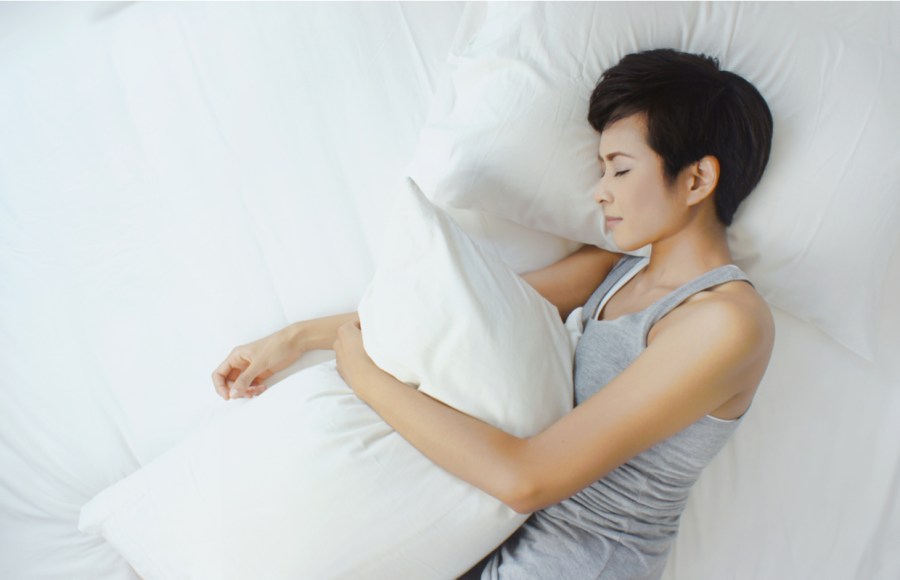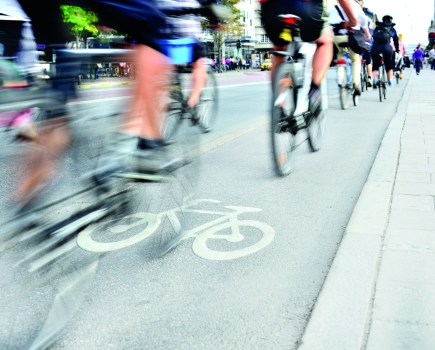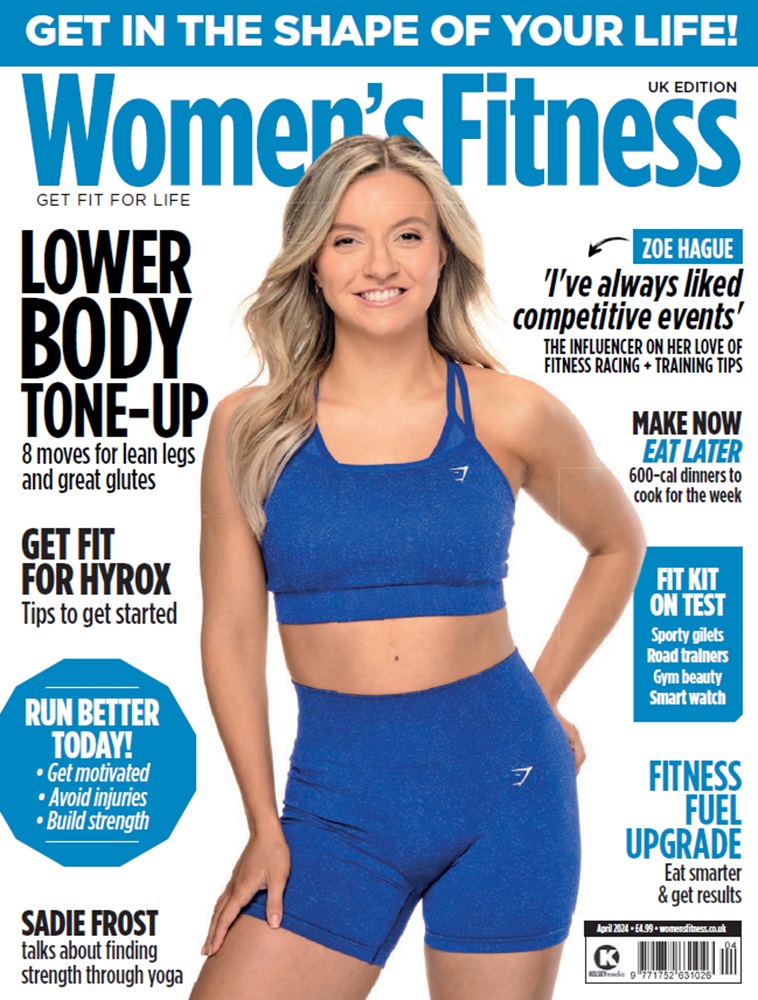Still awake at 2am? Your favourite gadgets can either keep you awake at night or help you fall asleep sooner. Eve Boggenpoel checks out the latest sleep gadgets to help you improve your sleep quality…
Whether it’s scrolling through Instagram, late-night Zoom sessions or checking news apps for the latest travel rules, our addiction to technology is showing no sign of abating.
Globally, we spend almost 2.5 hours a day on social media and messaging alone. When you consider 36 per cent of Brits struggle to fall asleep every week – and 20 per cent struggle every night – it might be time to revisit the relationship between poor sleep and technology.
How do electronic devices affect sleep?
‘Light from electronic devices in the hours before bedtime can disrupt circadian rhythms, of which the sleep-wake cycle is one of the most well-known examples,’ explains Professor Jason Ellis, professor of sleep science at the Northumbria Centre for Sleep Research and advisor to Puressentiel.
‘Devices such as mobile phones, tablets, e-book readers and computers emit short-wavelength enriched light (known as blue light). This has been shown to reduce or delay the natural production of [sleep hormone] melatonin in the evening. It can also decrease feelings of sleepiness.’
Indeed, one study found dim-light melatonin onset was more than 1.5 hours later on the day following an e-book reading session.
Do blue light filters work?
But what about blue-light filters, I hear you ask? Unfortunately, it’s not that simple. According to research by the University of Manchester, using sleep gadgets like Night Light on Android or Night Shift on Apple iOS to make the display more ‘yellow’ is worse than leaving it in the regular ‘blue’ mode.
This is according to Dr Tim Bond, natural health and sleep expert from Dragonfly CBD: ‘The researchers found that colour-sensing cone cells in the eye may be more responsive to yellow light than to blue light. Using a phone or tablet in night mode may increase the stimuli from your eyes telling your brain it isn’t time for sleep.’
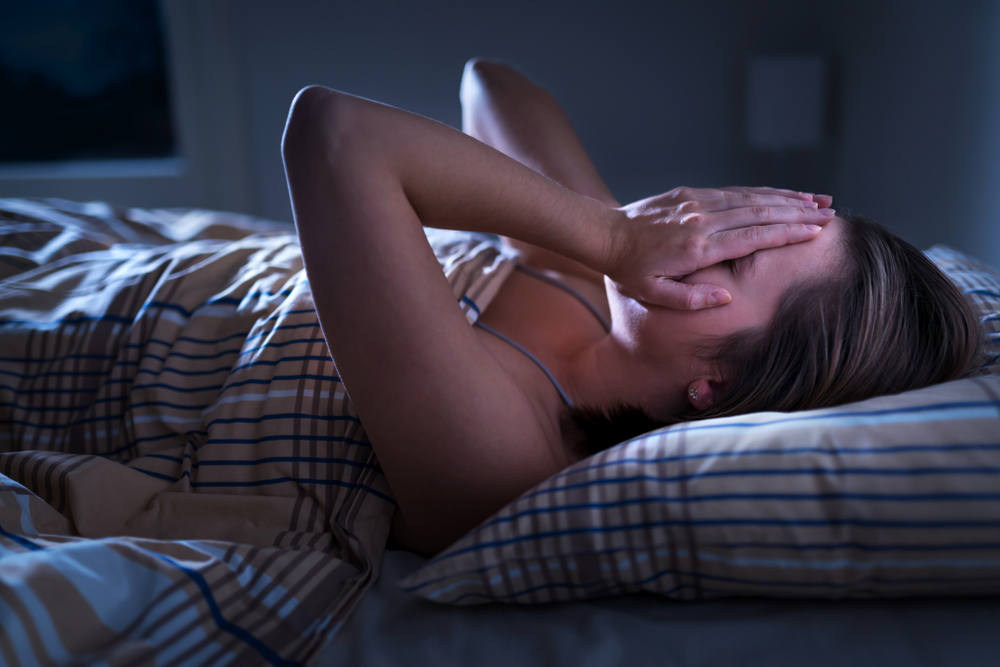
How does poor sleep affect health?
So, what is the impact of all this technology-induced insomnia? ‘Sleep deprivation affects your brain’s prefrontal cortex and amygdala, which control reasoning and emotions,’ explains Dr Verena Senn, neurobiologist and head of sleep research at Emma The Sleep Company. ‘This can cause mood changes which may leave you feeling more irritable or sad. It also makes it much harder for your brain to absorb and process information.’
And poor sleep can affect your sports performance, too. Research in the Journal of Sleep found athletes who don’t get sufficient sleep experience weight gain, mood disturbance, increased anxiety, inability to focus and, disturbingly, decreased motor control.
Cn I improve my sleep quality with gadgets?
Luckily for those of us who struggle with insomnia, it needn’t be that way. ‘Technological tools you use in everyday life can impact your ability to sleep. However, they are also an important tool that can help you sleep better,’ says sleep expert James Wilson, AKA The Sleep Geek.
‘These sleep gadgets can help by delivering soothing and relaxing content that helps drop your heart rate and prepare you for sleep.’ What’s more, specific new technologies can directly impact your nervous system, inducing a welcome sense of calm.
So, instead of losing sleep from too much tech, why not embrace the medium to help you drop off at night? Here’s our pick of the latest sleep gadgets to boost your chances of a goodnight’s sleep…
Best sleep gadgets to help you fall (and stay!) asleep…

QUICK TIP: Can’t sleep without (or with!) your phone next to your bed? Try using Sleep Halo (£39.99). This wireless mobile phone charger incorporates electromagnetic-field shielding and deflects mobile phone radiation away from your bed. In a recent survey of customers, 89 per cent of respondents said they felt they slept better with SleepHalo.

The Mela Weighted Blanket (from £109)
THE CLAIM: Said to boost melatonin, oxytocin, dopamine and serotonin, and to reduce cortisol levels. The claims for weighted blankets are high indeed.
THE THEORY: Weighted blankets are based on deep pressure stimulation theories. These hold that firm but gentle pressure relaxes the nervous system.
One small study found blankets weighing at least 10 per cent of participants’ bodyweight gave objective and subjective improvements to insomnia – both psychologically (releasing anxiety) and physiologically (decreasing activity of the sympathetic nervous system).
WF VERDICT: ‘Lying beneath the Melablanket, the word that comes to mind is “reassuring”. It’s both comforting and very grounding. It felt as if it wasn’t just anchoring my body, but my mind too. I didn’t wake for a luxurious six hours straight.
‘When I got up for a comfort break, my body felt very different. it was as if the physical tension I’d been carrying had finally relaxed. I went straight back to bed afterwards and drifted off for another couple of hours.’
BEST FOR: Busy or anxious minds.
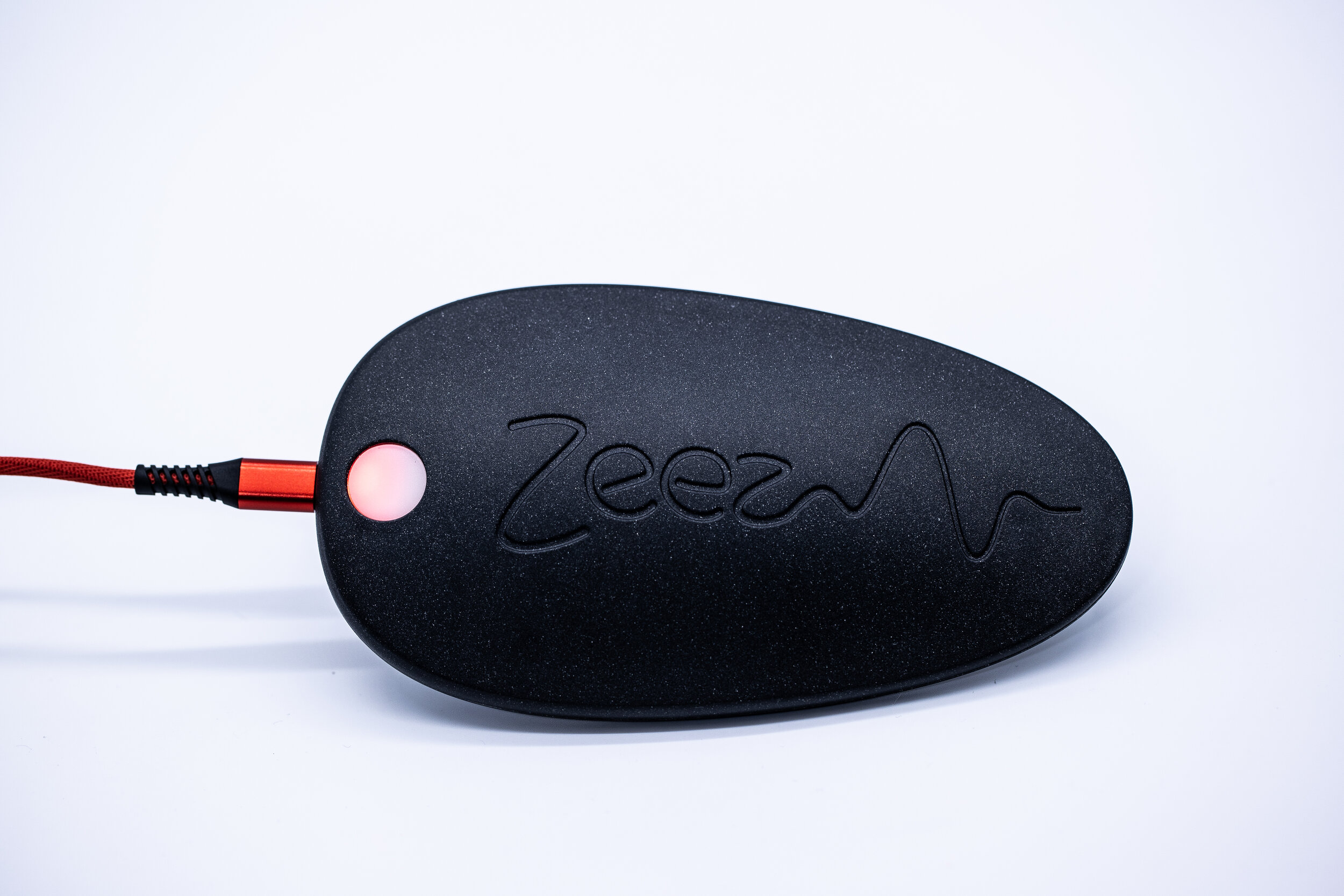
Zeez Sleep Pebble (£300)
THE CLAIM: This sleep gadget mimics the brainwaves of someone who sleeps well, to encourage a healthy sleep pattern in people with insomnia.
THE THEORY: Placed beneath your pillow, this device emits alpha sound frequencies (between 8-12Hz) to help you switch off, theta frequencies (4-8Hz) to help you fall asleep and delta frequencies (0.5-4Hz) to help you sleep deeply.
WF VERDICT: ‘As there are no soothing sounds, comforting weight or gentle vibrations with this device, I didn’t feel as instantly supported as I did with some of the other gadgets on test. It can take from five days to six weeks for the device to work, so the jury’s still out at WF.
‘That said, we’re impressed with the technology and sleep advice on the website and, while I didn’t have instant results, the times I was awake in the night, I felt very calm and relaxed. Usually, if I’m not asleep my mind is racing or I’m feeling anxious. So, initial results look good.’
BEST FOR: Those willing to make a long-term investment in improving their sleep.

Sensate 2 (introductory price £199)
THE CLAIM: Said to improve heartrate variability – a key marker of overall health – calm the sympathetic nervous system, increase stress resilience and support deeper, longer sleep.
THE THEORY: Low-frequency infrasonic waves (below 30Hz) target the vagus nerve, a branch of the parasympathetic nervous system that regulates, among other things, your mood and heart rate. Research shows that stimulating the nerve eases stress and increases vagal tone. This is an important mechanism for developing resiliency.
WF VERDICT: ‘I really liked the ultra-soothing soundscapes that accompany this sleep gadget, ranging from nature and sacred spaces to breath-enhancing tracks. Resting the pebble-shaped device over your breast bone, the gentle vibration (I used the lowest setting) was barely perceptible, but my breath naturally became very slow.
‘The 20-minute sessions were plenty long enough to deeply relax me in preparation for bed. On one test out I was asleep within 12 minutes! It’s definitely a device I’d use regularly.’
BEST FOR: Stress-related insomnia.

CBD Pillow (£119.99)
THE CLAIM: This gel-memory pillow comes with a pillowcase infused with millions of micro-capsules of cannabidiol. These release CBD all night long to help you get better sleep.
THE THEORY: CBD has been shown to reduce cortisol levels and ease anxiety. The encapsulation of the oil prevents evaporation or oxidisation until release is triggered by friction (of your head).
Third-party testing (on animal skin) showed around 60 per cent absorption after seven hours. Plus, after 20 washes, the pillowcase still contained up to 14 per cent above the guaranteed amount of CBD (12g per sq m).
WF VERDICT: ‘The CBD-infused pillowcase lasts three to six months dependent on use (replacement pillowcases cost £59.99). The pillow itself was super comfortable for sleeping on my side, avoiding the common problem of poor neck alignment and stiff shoulders in the morning.
‘However, as with the Zeez, I missed being able to instantly feel the effects of the sleep gadget. That said, simply knowing I was using it, was enough to reduce anxiety about not sleeping. I fell asleep quite soon and woke five hours later. It didn’t help me get back to sleep though.’
BEST FOR: Mild sleep problems.
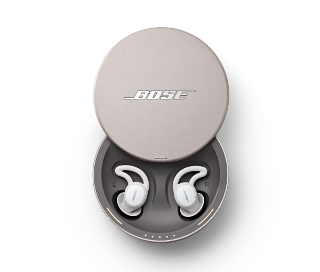
Bose Sleepbuds II with alarm (£229.95)
THE CLAIM: Clinically proven noise-masking technology helps you fall asleep faster, stay asleep and improve overall sleep quality. This is according to tests by the University of Colorado, in collaboration with Bose.
THE THEORY: Noise-masking technology is best suited to sudden unexpected sounds, such as a loud snore. This is because it uses sound with specific frequencies to make undesirable noises less perceptible to your brain.
WF VERDICT: ‘Everything speaks quality with this device, from the elegant yet practical storage/charging case to the über comfortable fit (even when sleeping on my side) and anti-friction coating.
‘You can play the sounds in increments from 30 minutes to the whole night, and programme an alarm for the morning. Some of the sounds were rather similar (and, unfortunately, my device wasn’t able to play all of them so had to be returned for a replacement). However, the ones that did play effectively masked my partner’s breathing (thank you, Bose!) and other ambient sounds. This enabled me to sleep undisturbed.’
BEST FOR: Light sleepers.

